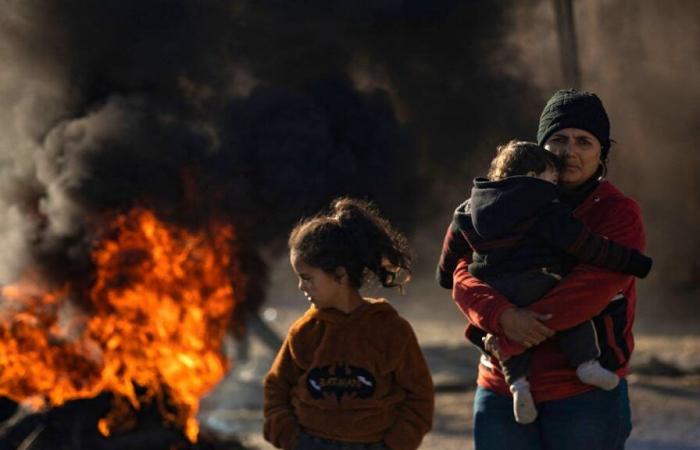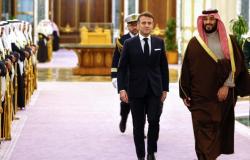Syrian Kurds flee their homes in Aleppo, a city recaptured from a coalition of rebel groups dominated by radical Islamists.
AFP
For the first time since the start of the civil war in 2011, the Syrian regime has completely lost control of Aleppo, the country’s second city, which has fallen into the hands of a coalition of rebel groups dominated by radical Islamists.
This renewed tension comes a few weeks before the return to the White House of Donald Trump, who could see it as an unexpected opportunity to reshape the Middle East.
The rebel offensive also coincided with the entry into force of a ceasefire in Lebanon between Israel and Hezbollah, an ally of Syria and Iran, which emerged weakened from the war. Russia, another supporter of Syrian President Bashar al-Assad, is monopolized by the war in Ukraine.
The American position
The US position on Syria has changed little in a decade. The United States believes that Mr. Assad has lost all legitimacy, but removing him from power is not their priority, as the rebels do not represent a better alternative.
According to Andrew Tabler, former adviser to Donald Trump on Syria, President Joe Biden “has not only relegated Syria to the background, he has completely ousted it from the picture”.
The setbacks suffered on the battlefield could, according to him, finally force Mr. Assad to a negotiated solution, to which he has long opposed.
“A new (American) government that is more attentive to Syria and conflicts of this type will be better able to manage the situation,” he adds.
Former President Barack Obama refused to attack Bashar al-Assad or support the rebels, opting for an alliance with Kurdish fighters in a bid to defeat the Islamic State (IS) group. Some 900 American soldiers are still in Syria in this context.
During his first term, Donald Trump ordered the withdrawal of American troops at the request of Turkey, which considers the Kurds as a threat, before reversing course following international appeals led by France.
But uncertainty remains over the intentions of Donald Trump, who notably appointed Tulsi Gabbard, known for having made statements favorable to the Syrian president, as head of National Intelligence.
“Support Israel, harm Iran and Russia”
Joshua Landis, a Syria expert at the University of Oklahoma, recalls that the first objective of American decision-makers has always been to “support Israel, and harm Iran and Russia.”
“So the rebel offensive is a good thing for America from that point of view, because it changes the security architecture in the Middle East dramatically,” he adds.
According to him, their victory would cut off the “Shiite crescent”, in which Iran has extended its influence westward to Lebanon. “It would be a boon for Israel and a blow to Iran.”
But Sunni Islamists would also oppose the United States, and would once again ask themselves the question of whether or not to protect the Kurds from Turkey.
“This presents a dilemma for the United States and Israel: do they really prefer an Islamist government running Syria or a divided and weak country?” Landis added.
Joe Biden’s government has dedicated more than a billion dollars over the past year in humanitarian aid for displaced Syrians, proving wrong those who criticize its inaction.
A US law which expires at the end of the month aims to prevent the normalization of trade with Damascus until accountability has been given for atrocities committed by Syrian officials.
A war that started in 2011
The war began after the repression of anti-government protests in 2011 and left more than 500,000 dead and millions displaced.
But many Arab countries have reconciled with President Bashar Al-Assad, believing that the war was over or at least frozen.
Recently, several Western countries including Italy, anxious to avoid a new influx of Syrian migrants, announced the return of a representative to Damascus.
“With these fluctuating power dynamics, is the door opening for a redefinition of the region and its security architecture? This is an important and open question,” underlines Mona Yacoubian, expert at the American Institute of Peace.
(afp)






